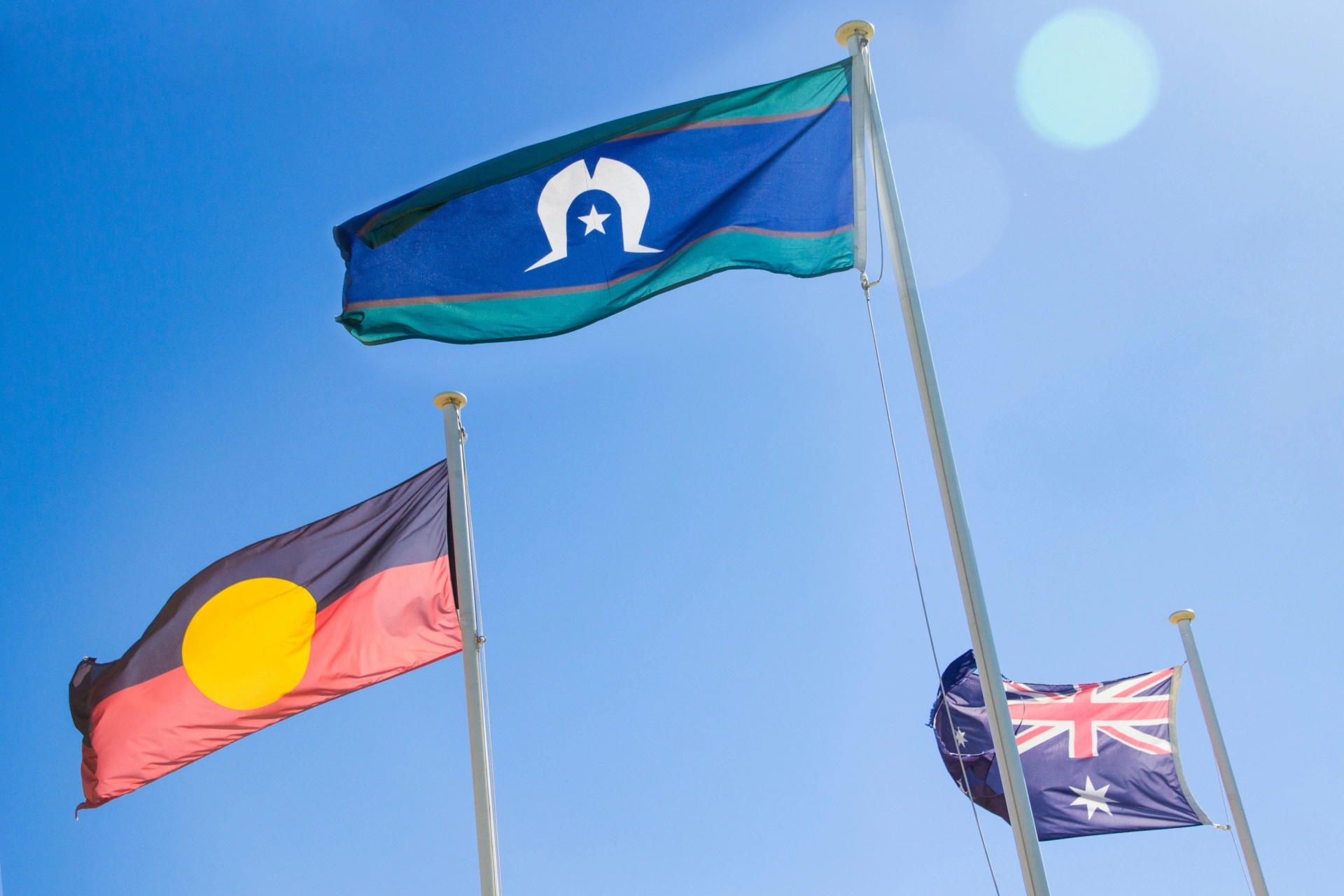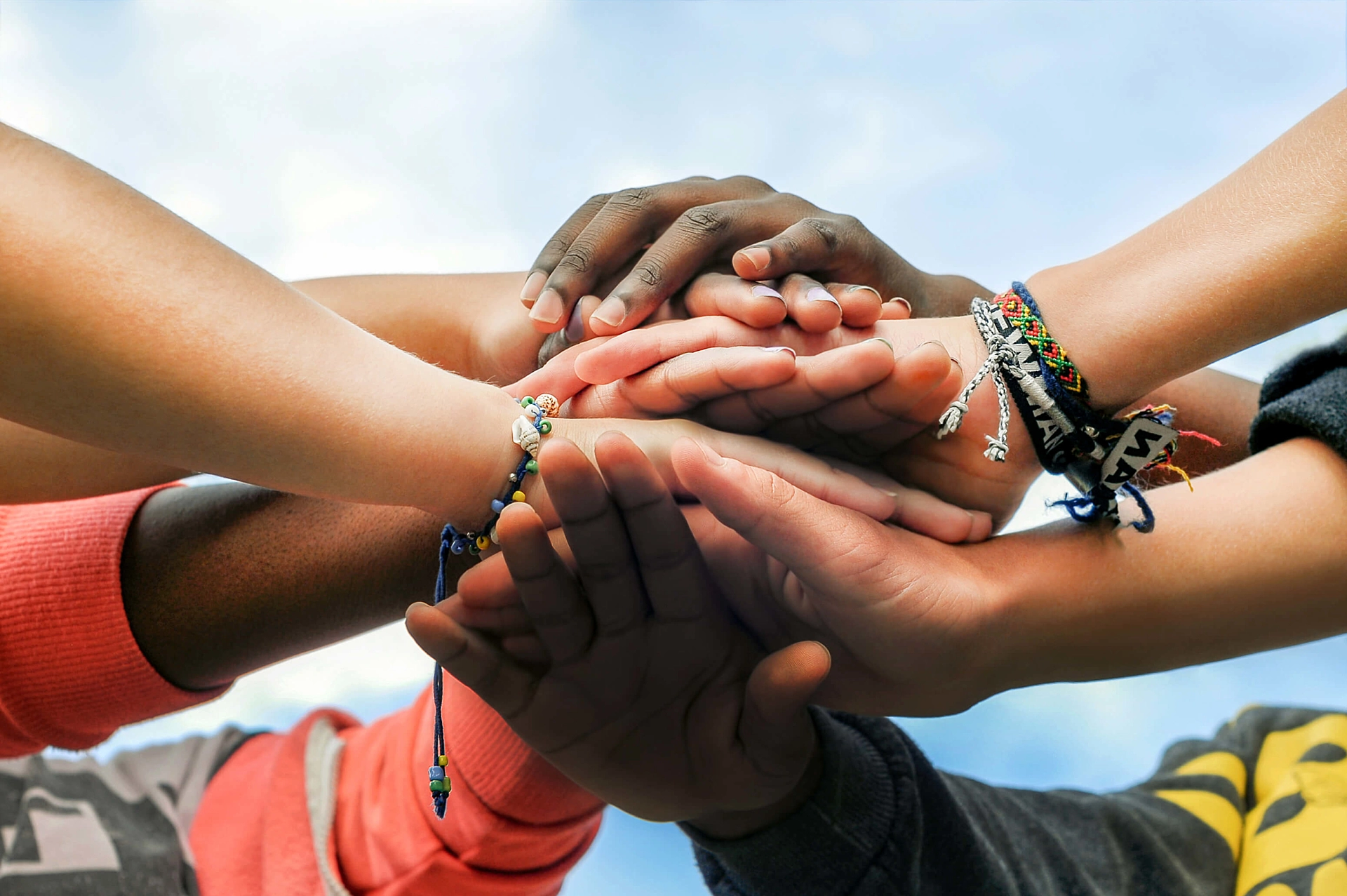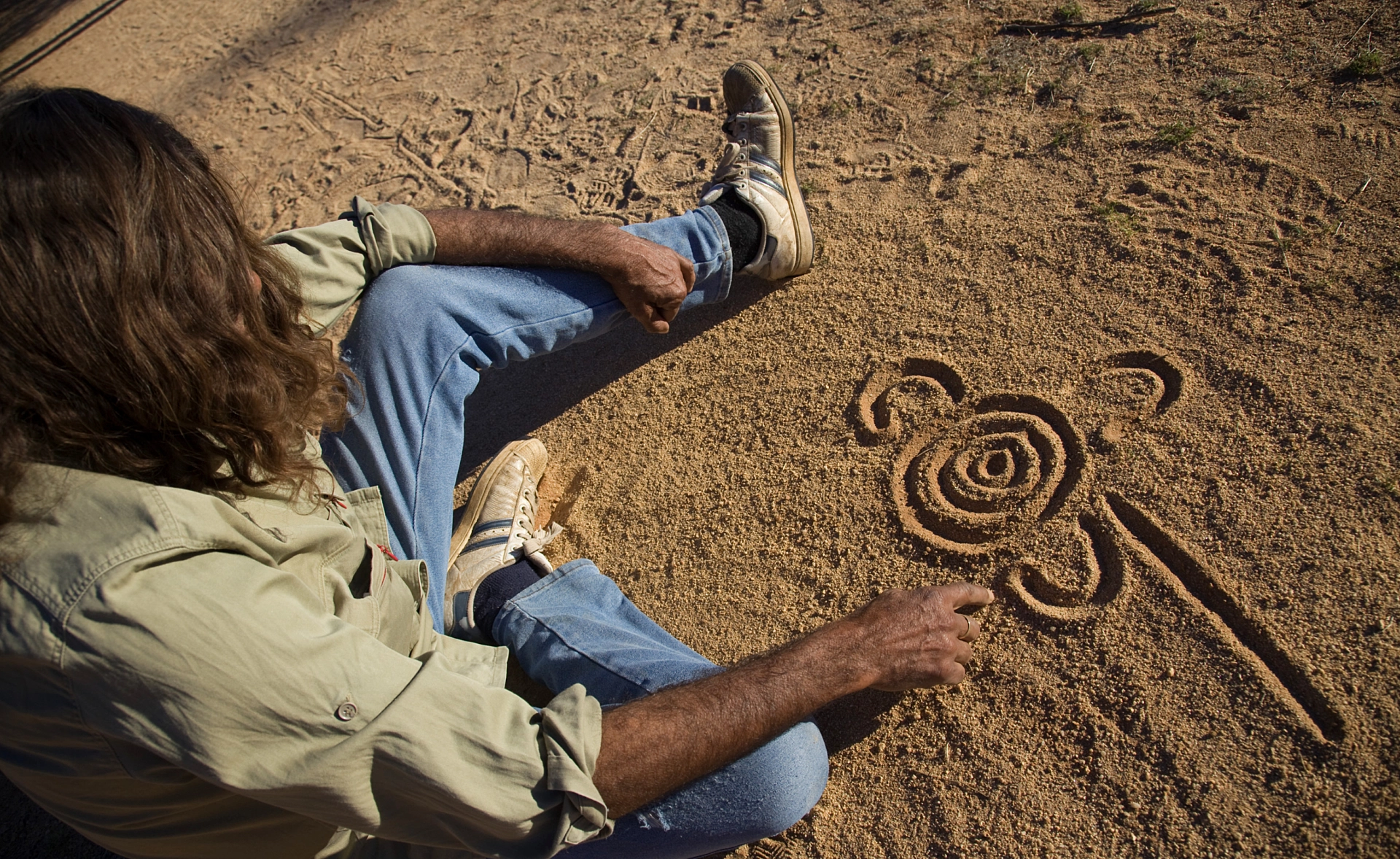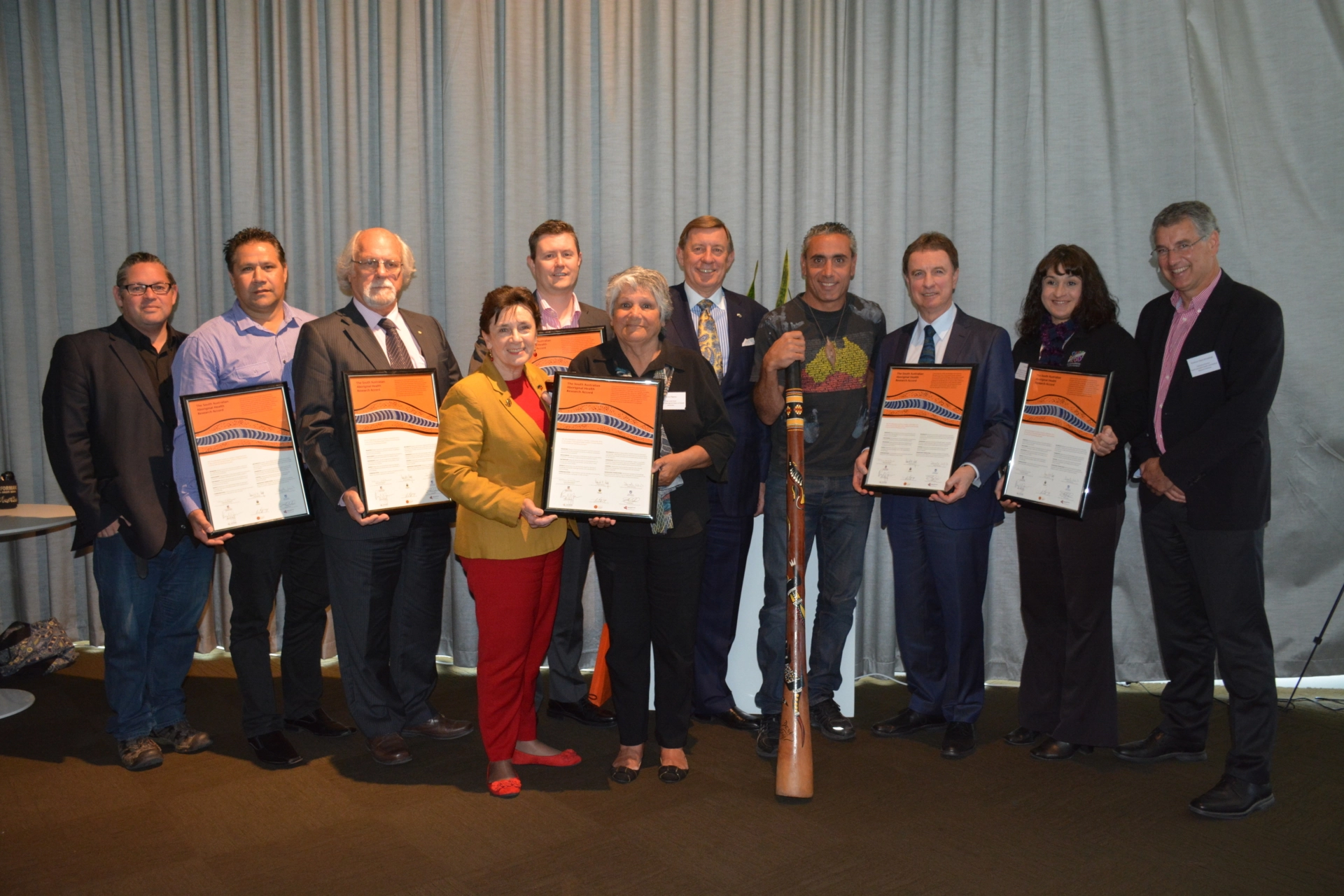The SAHMRI Indigenous Collective was established in 2014. It is the mechanism for Aboriginal and Torres Strait Islander staff and students within SAHMRI to discuss cultural issues, research strategy, community engagement, leadership and workforce development in a culturally safe space.
The Collective provide guidance and leadership to develop a sector leading organisation for Aboriginal and Torres Strait Islander employment, professional development, and mentoring of Aboriginal and Torres Strait Islander and non-Indigenous staff working in Aboriginal and Torres Strait Islander research.
A key role of the Collective has been to provide strategic guidance and cultural advice to the SAHMRI Executive and Management teams on the development of SAHMRI-wide policies and to assist SAHMRI and collaborating partners in designing and delivering research that is accountable to the Aboriginal communities in South Australia.
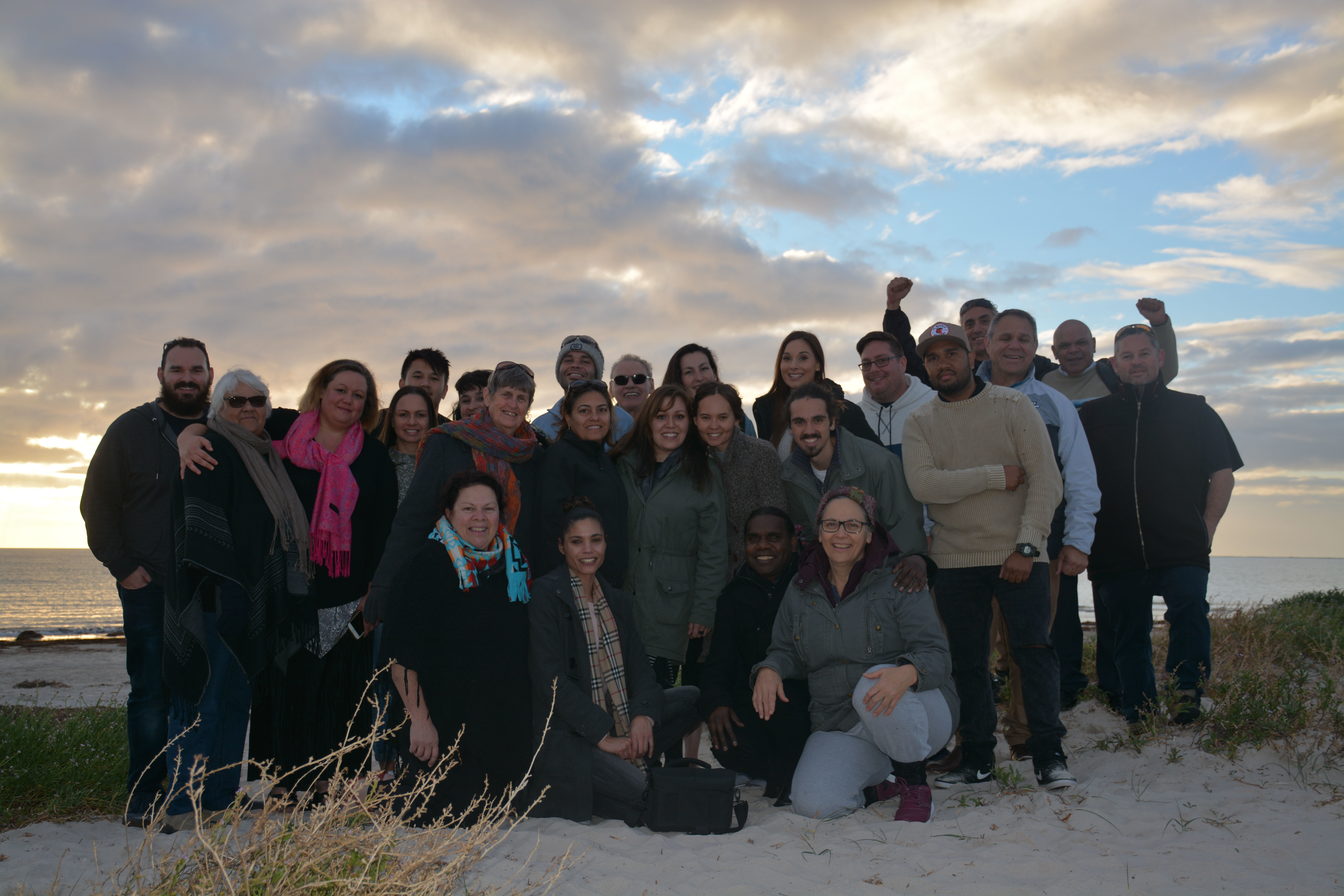
Some of the foundational members of the SAHMRI Collective
SAHMRI's Aboriginal and Torres Strait Islander Protocols
The SAHMRI Indigenous Collective developed these Aboriginal and Torres Strait Islander Protocols to guide and support SAHMRI in working with Aboriginal and Torres Strait Islander communities nationally.
These Aboriginal and Torres Strait Islander protocols are a resource providing advice and guidance for staff when conducting business at SAHMRI. It is envisaged that these protocols will assist SAHMRI staff across the institute in addressing matters of cultural and relational significance for Aboriginal and Torres Strait Islander people.
The protocols address communication processes, relationships and activities to support the ‘right way’ of carrying out research and business with Aboriginal and Torres Strait Islander people. This set of protocols will assist SAHMRI in becoming a culturally competent and respectful working environment for Indigenous and non-Indigenous staff and students, guests and visitors to SAHMRI. They are a collection of live protocols rather than static and this collection will grow over time.
Indigenous Voice to Parliament
SAHMRI’s Indigenous Collective and Executive believe that providing for an Indigenous Voice to Parliament within Australia’s Constitution, as called for by the Uluru Statement from the Heart, is strongly aligned with our vision:
- To Improve health equity in Australia and Beyond
- Be translational to deliver impact
- Deliver the right interventions, to the right people, at the right time in their lives to optimise health
View our statement on the Indigenous Voice to Parliament
ViewClick here to learn more about the proposal for an Indigenous Voice to Parliament.
Change the Date
January 26 is known to many as 'Australia Day' but is not a day of celebration for all Australians. For many Aboriginal and Torres Strait Islander people it marks the beginning of the invasion and dispossession of their land and brings memories of violence, massacres and genocide. That is why the day is often called ‘Invasion Day’, ‘Day of Mourning’, ‘Survival Day’ or ‘Aboriginal Sovereignty Day’.
SAHMRI's Indigenous Collective, on behalf of the entire SAHMRI community, has prepared a statement that encapsulates our institute's position when it comes to selecting a date to celebrate the past, present and future of this country.
SAHMRI stands alongside our Indigenous Collective’s call to celebrate Australia's Day on a date that is inclusive and representative of the diversity of cultures that have made Australia the nation it is today.
View our Change the Date Statement
ViewResources
Facebook Group
For those who support celebrating the collective nation of Australia on a different date, we welcome your support for change. There are events held by Aboriginal and Torres Strait Islander peoples nationally on the 26th of January that celebrate our survival each year. Information can be access via this link.
VACCHO Clip
For further information please see this YouTube clip produced by VACCHO, which discusses perspectives of both Aboriginal and non-Indigenous staff about changing the date.
